Building Trust & Cooperation on the Road to Net Zero
Humanity faces serious and complex obstacles to securing our long-term well-being. The most challenging is the emission of CO2 into our planet’s atmosphere due to human activity.
When faced with future uncertainty, it’s human nature to search for one-size-fits-all solutions, but there is no single answer to achieve carbon neutrality. Solutions must be tailored to individual needs and often require complex thinking. They also demand unprecedented collaboration across policymakers, companies, investors and local communities.
In 2021, Mitsubishi Heavy Industries (MHI) made its “MISSION NET ZERO” commitment to become carbon neutral. By 2040, the company aims to remove all CO2 emissions from its own operations and achieve net-zero in its entire value chain, including emissions attributed to customers’ use of products and services.
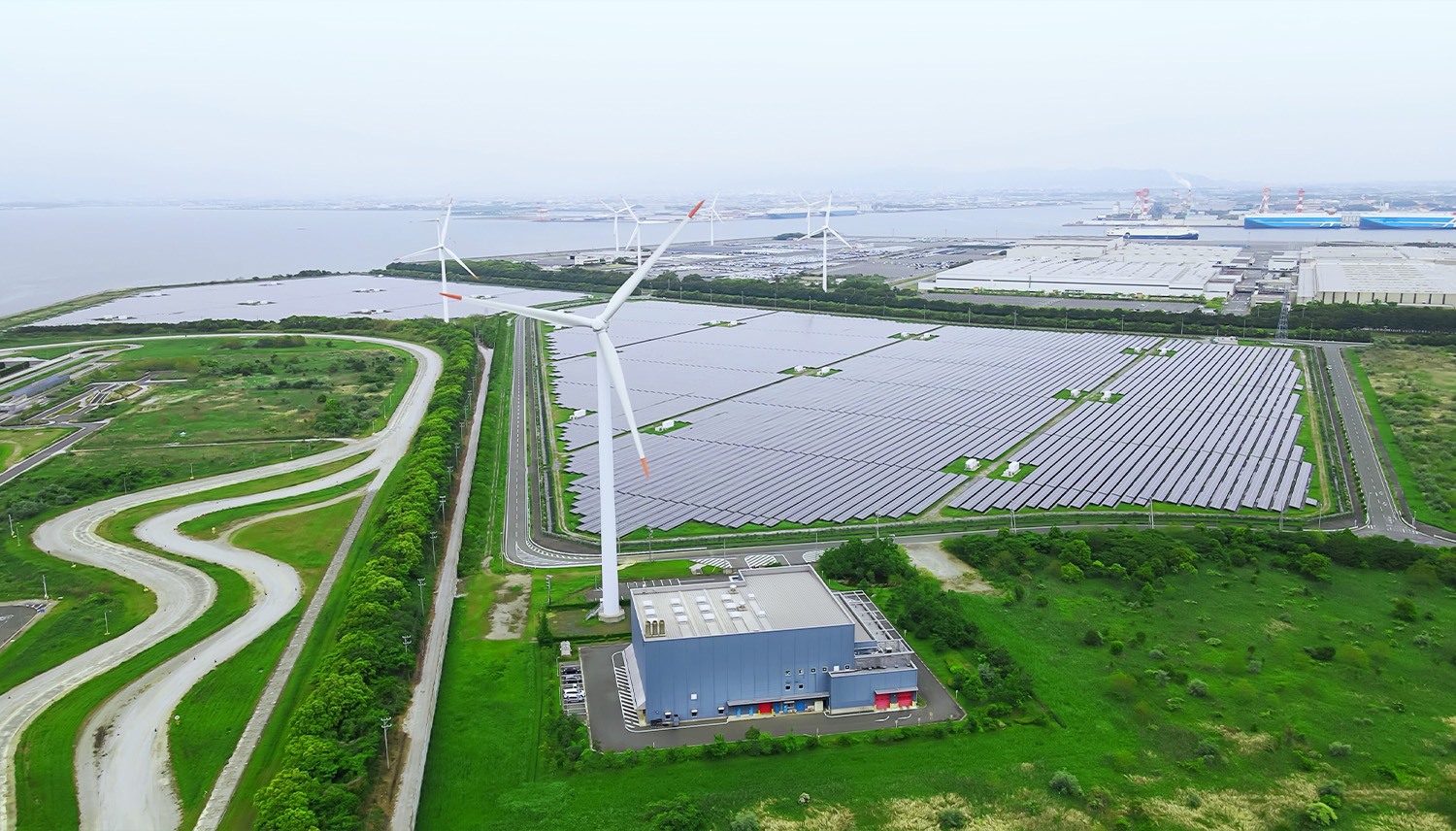
But we must go further and faster in turning plans into action. Given the right conditions, large corporations and the private sector are in the best position to accelerate wider change, which is why MHI’s real focus is on its customers’ emissions. As a technology provider, it aims to get the right tools to its customers as soon as possible, so they can advance toward their net-zero goals.
To that end, MHI has put its commitments into action with partners around the world, leveraging its ability to decarbonize existing infrastructure while developing net-zero solutions critical to delivering the energy transition in a just, orderly and affordable way.
Crucial Collaborations
In October 2022, MHI announced a partnership with ArcelorMittal, the world’s leading global steel and mining company, and resources producer BHP, along with Mitsubishi Development Pty Ltd. Together, they’ll run a multi-year trial of MHI’s carbon capture technology at two steel plants in Belgium and North America.[1]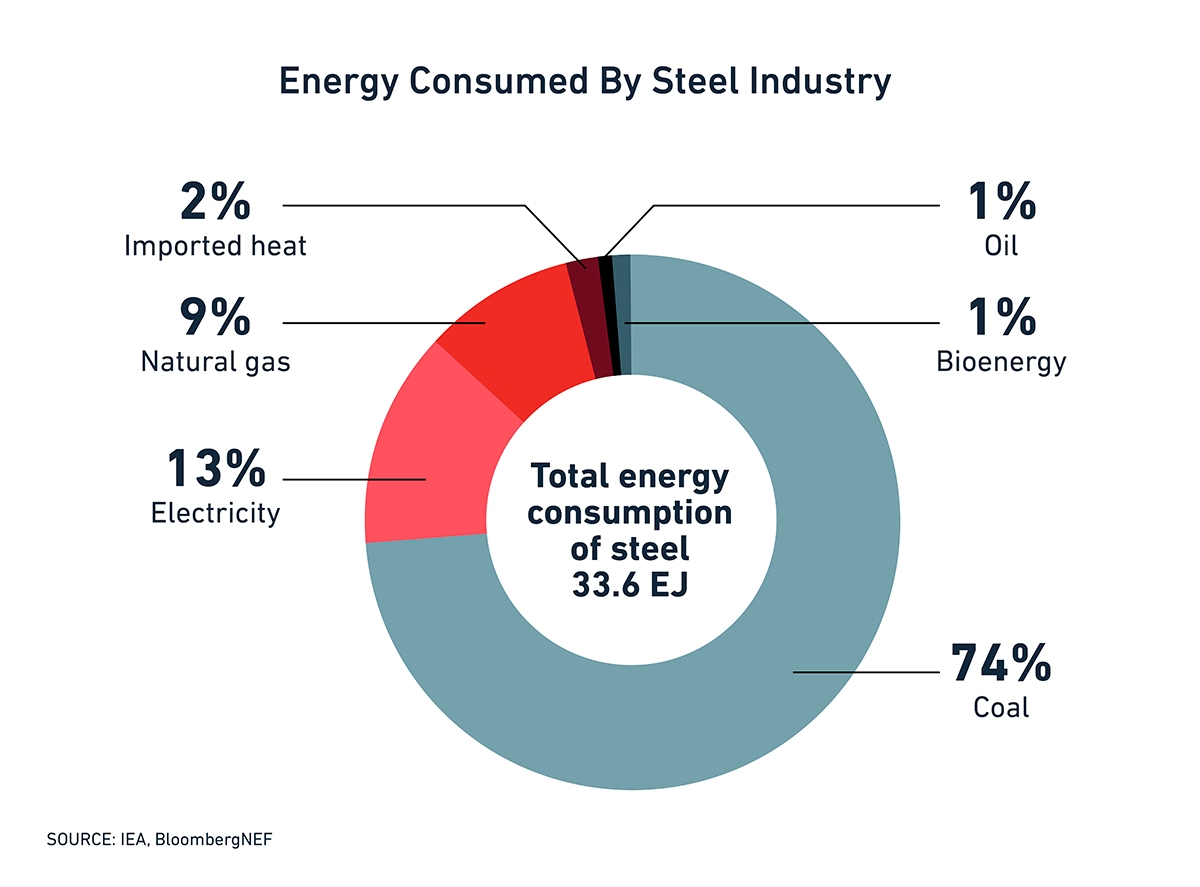
Steelmaking accounts for an estimated 7% of global greenhouse gas emissions,[2] yet there are no full-scale Carbon Capture, Utilization and Storage (CCUS) technologies in operation at any blast furnace worldwide. MHI’s technology entails a two-phase process to separate and capture CO2 in this trial and solve technical challenges, marking what BHP described as a “critical milestone” in efforts to decarbonize this economically vital industry.
Over the course of more than three decades, MHI has become the world’s largest licensor of post-combustion CO2 capture technology, having delivered 14 commercial capture plants around the world. The company’s expertise will likely be in demand across steel and a range of other industries over the coming years, with global CCUS capacity on course to grow dramatically through the end of this decade.
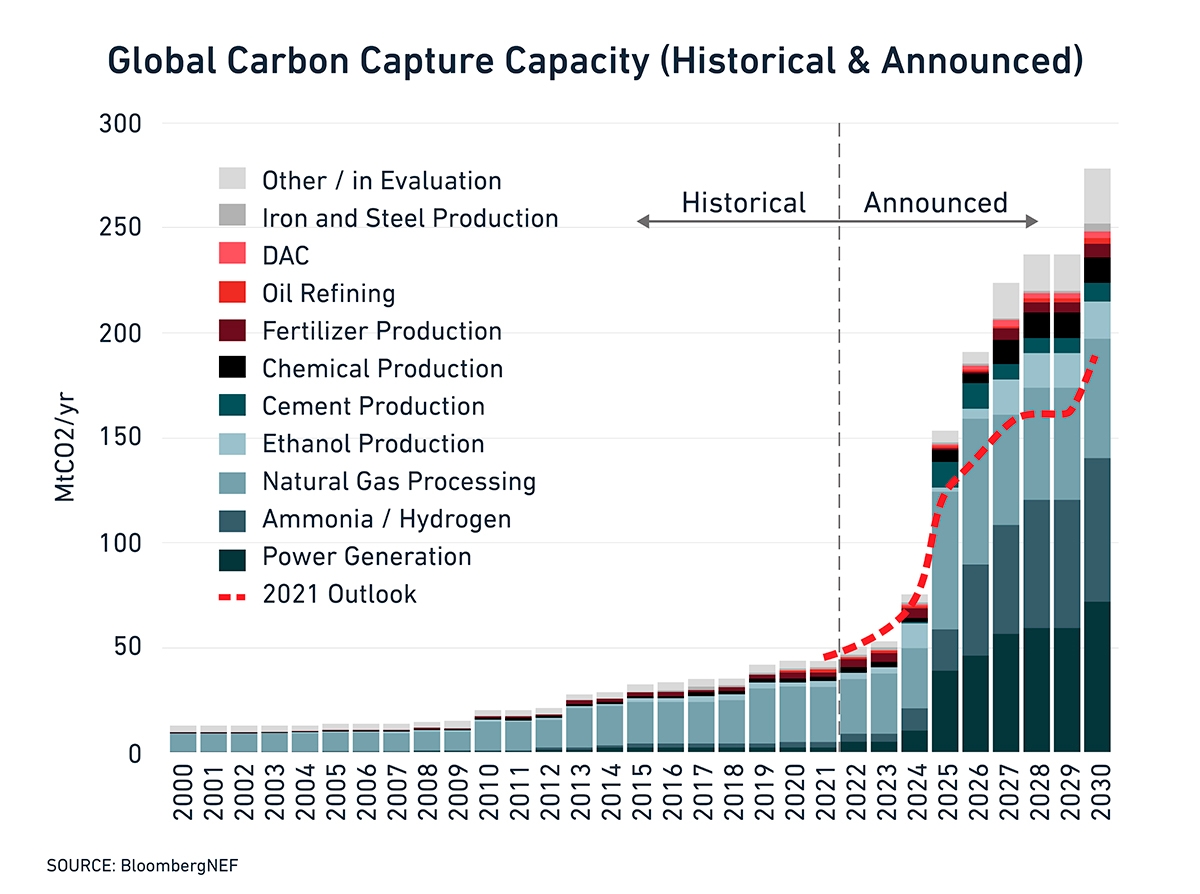
Case in point: when ExxonMobil went looking for a partner to form the only complete carbon capture, transportation and storage solution as end-to-end solution for the market, it chose to collaborate with MHI.
Announced in November 2022, the partnership of ExxonMobil and MHI, with support from The Kansai Electric Power Co., leverages the companies’ operating, engineering, and core science capabilities to advance technologies that reduce the cost of CO2 capture for heavy emitters.
Powerful Partnerships
Both projects illustrate the enormous potential of collaboration in tackling the CO2 challenge. Building shared infrastructure in industrial clusters, putting in place long-term public-private partnerships in the process, makes more sense than implementing in-house proprietary solutions independently from the rest of the market.
A perfect example of this can be found in the United Kingdom, where MHI is working with multiple partners to decarbonize the East Coast Cluster in the north-eastern areas of Humber and Teeside, deploying carbon capture solutions across a range of industries, sharing common infrastructure.
The two regions together account for almost half of industrial cluster emissions in the entire UK, and they aim to become the country’s first “net-zero” carbon industrial cluster by 2040. This type of first-mover project demonstrates how public and private joint ventures can deliver projects at scale with tangible benefits.
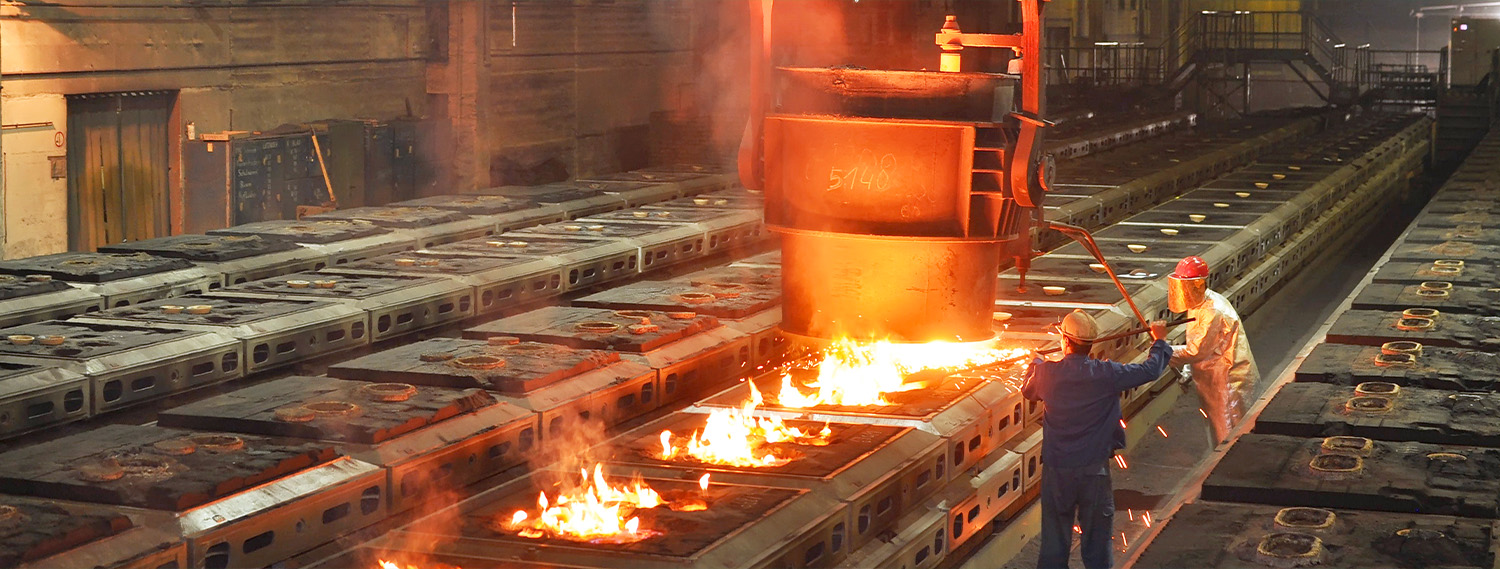
“We already have the technology but in terms of applying it to society we still need some innovation,” Kentaro Hosomi, Chief Regional Officer EMEA at MHI, told a climate conference in 2022. “The role of small and medium-sized companies is to start from zero and bring progress to one.
“Companies like MHI can then help bring it from 1 to 100. This scale will bring affordability to society, and in order to get there we need to apply technology to practical solutions – the first-mover projects. In order to speed up implementation of the energy transition], strong support from governments and markets for these first-mover projects is going to be absolutely essential.”
Beyond Physical Solutions
Work on advancing carbon-neutral technologies extends beyond the physical space. In 2021, MHI partnered with IBM Japan to develop CO2NNEXTM, a digital platform designed to advance the transition to a society in which emitted CO2 is utilized as an industrial input.
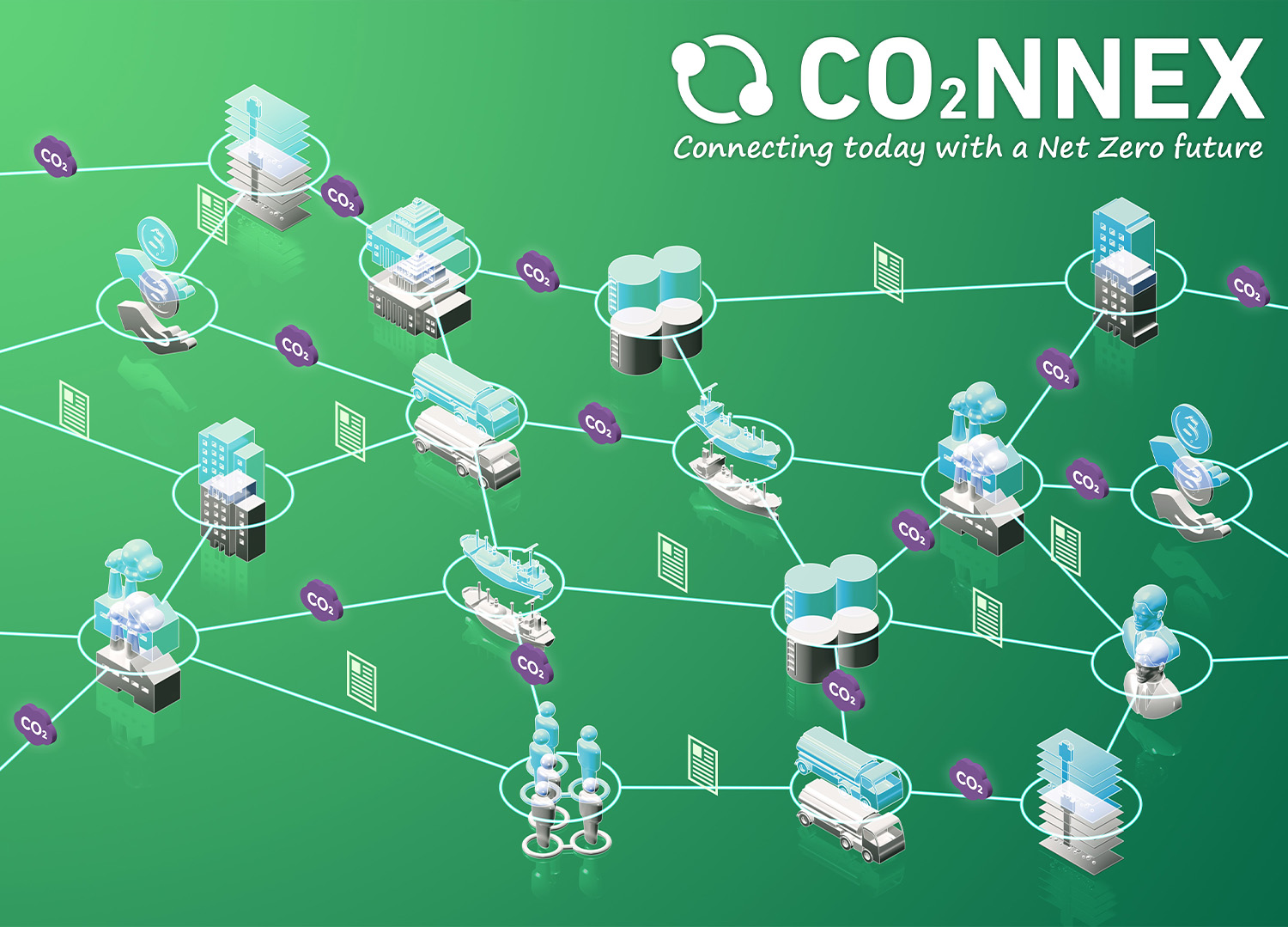
CO2NNEX enhances the transparency of the CCUS value chain to make visible the amount captured, transported, traded or stored at each step. In that way, CO2NNEX offers a level of traceability that will be crucial from a viewpoint of environmental value including investment and cost.
Across the spectrum of the carbon challenge, MHI is dedicated to making bold investments that move the world forward. That includes deploying science-based engineering and an unwavering commitment to quality to create a cleaner planet and a better world.
Today, that commitment is focused on realizing carbon neutrality. By working together with governments and other companies, MHI will be at the forefront of solving society’s biggest challenges and enhancing quality of life for the communities in which we live, work and play.
